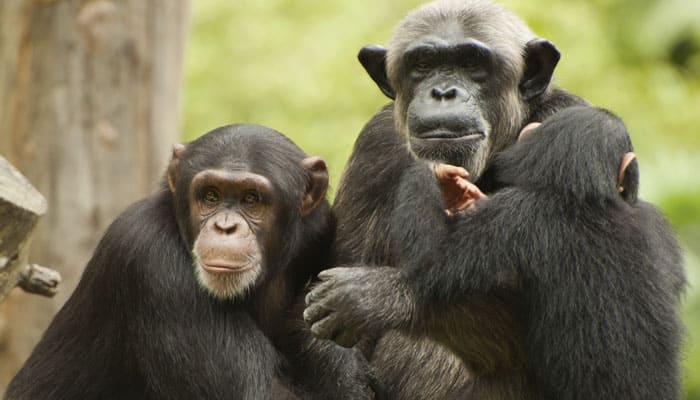Washington: A new study has provided a deeper insight into how the chimpanzees share skills and develop "culture" in the wild like humans.
Scientists from University of St Andrews, University of Neuchatel, Anglia Ruskin University, and Universite du Quebec studied the spread of two novel tool-use behaviors among the Sonso chimpanzee community living in Uganda's Budongo Forest.
Dr Catherine Hobaiter, Lecturer in Psychology at the University of St Andrews, said that researchers have been fascinated for decades by the differences in behavior between chimpanzee communities; some use tools some don't, some use different tools for the same job.
These behavioural variations have been described as "cultural," which in human terms would mean they spread when one individual learns from another; but in most cases they're long established and it's hard to know how they originally spread within a group, she further added.
She also mentioned that they were incredibly lucky to be in the right place at the right time to document the appearance and spread of two novel tool-use behaviors.
The researchers investigated the spread of new variations of 'leaf-sponges,' which are tools dipped in water to drink from, commonly manufactured by the Sonso chimpanzees by folding leaves in their mouth. Different individuals were observed to develop two novel variants; moss-sponging (a sponge made of moss or a mixture of leaves and moss) and leaf-sponge re-use (using a sponge left behind on a previous visit).
Dr William Hoppitt, Senior Lecturer in Zoology at Anglia Ruskin University said that the results provided strong evidence for social transmission along the chimpanzees' social network, demonstrating that wild chimpanzees learn novel tool-use from each other and supported the claim that some of the observed behavioral diversity in wild chimpanzees should be interpreted as 'cultural.'
The study indicated that group-specific behavioral variants in wild chimpanzees could be socially learned, adding to the evidence that this prerequisite for culture originated in a common ancestor of great apes and humans, before the advent of modern humans.
The study is published in open access journal PLOS Biology.
















